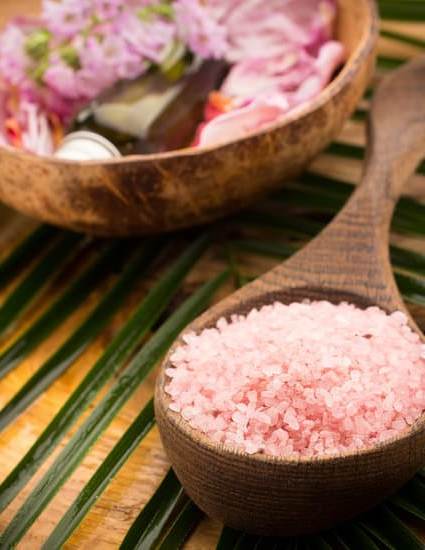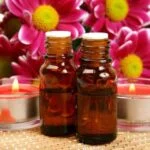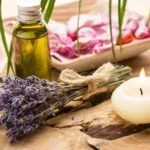What are the health benefits of aromatherapy? Aromatherapy, a holistic healing practice, utilizes essential oils to promote physical and mental well-being. The power of scents in influencing our health has been recognized for centuries, with aromatherapy gaining popularity in modern times for its therapeutic properties.
Aromatherapy involves the use of aromatic plant extracts to improve overall health by stimulating the senses. The practice can be administered through inhalation, topical application, or even ingestion under the guidance of a trained professional. By understanding the basics of aromatherapy, individuals can unlock the potential benefits it offers for their wellness journey.
From relieving stress and promoting relaxation to managing pain and enhancing skin health, aromatherapy has a wide range of applications in improving various aspects of one’s health. By harnessing the natural healing properties of essential oils, aromatherapy serves as a gentle yet effective complementary therapy for both physical and emotional well-being. In the following sections, we will delve deeper into the history, science, and specific health benefits of aromatherapy.
History of Aromatherapy
Aromatherapy has a rich history that dates back thousands of years, with roots in ancient civilizations such as Egypt, China, and India. These cultures recognized the powerful healing properties of essential oils and plant extracts, using them for religious rituals, perfumery, and medicinal purposes. In Egypt, aromatic substances were used in embalming practices as well as for their therapeutic benefits. The Egyptians also believed that certain scents could elevate their spiritual connection with the divine.
In Chinese medicine, aromatherapy was employed to balance the body’s vital energy or qi. Essential oils were used in conjunction with acupuncture and massage to promote overall health and well-being. In India, Ayurvedic medicine embraced the use of aromatic oils for their ability to harmonize the mind, body, and spirit. The practice of inhaling fragrant plant extracts to enhance mood and promote relaxation was a common theme across these early civilizations.
The modern concept of aromatherapy can be attributed to French chemist René-Maurice Gattefossé, who coined the term “aromatherapy” in the early 20th century after experimenting with lavender oil to heal a burn on his hand. His research laid the foundation for the scientific study of essential oils and their therapeutic benefits. Today, aromatherapy is widely practiced around the world, with an increasing body of research supporting its efficacy in promoting physical and mental health.
How Aromatherapy Works
Aromatherapy works by harnessing the power of essential oils extracted from plants to promote healing and overall well-being. These potent oils are carefully sourced and processed to retain their natural properties, including their distinct scents and therapeutic benefits. When inhaled or applied to the skin, these essential oils interact with the body in various ways, influencing both physical and emotional health.
The science behind aromatherapy lies in how the molecules in essential oils trigger responses in the brain when they are inhaled. For example, when you breathe in the aroma of lavender essential oil, it can have a calming effect on your nervous system, reducing feelings of stress and anxiety.
Similarly, peppermint essential oil can invigorate and uplift your mood due to its stimulating properties. These reactions occur as the molecules travel through the nose and into the olfactory system, sending signals to the brain’s limbic system, which is responsible for emotions, memories, and behaviors.
In addition to inhalation, aromatherapy can also benefit the body through topical application on the skin. When diluted properly with a carrier oil like coconut or jojoba oil, essential oils can be massaged onto specific areas of the body to target pain relief or skin conditions.
This method allows for direct absorption of the beneficial compounds into the bloodstream, where they can exert their therapeutic effects. With its ability to influence both mind and body through natural means, aromatherapy has become a popular holistic approach to enhancing overall health and wellness.
Health Benefits of Aromatherapy
Aromatherapy is not only a delightful experience for the senses but also offers numerous health benefits for improving physical well-being. The use of essential oils in aromatherapy can have a positive impact on various aspects of our health, ranging from boosting immunity to relieving pain and inflammation. The healing properties of essential oils have been utilized for centuries in traditional medicine practices across different cultures.
Boosting Immunity
One of the key health benefits of aromatherapy is its ability to boost the immune system. Essential oils such as eucalyptus, tea tree, and lavender have antimicrobial properties that can help fight off infections and strengthen the body’s natural defense mechanisms. By inhaling these oils or using them topically, individuals can support their immune system and ward off common illnesses.
Relieving Pain and Inflammation
Aromatherapy is also effective in managing pain and reducing inflammation. Essential oils like peppermint, chamomile, and rosemary have analgesic and anti-inflammatory properties that can provide relief from headaches, muscle aches, arthritis pain, and other discomforts. When used in massages or diluted with carrier oils for topical application, these oils can help alleviate pain without the need for over-the-counter medications.
Mental Health Benefits of Aromatherapy
Aromatherapy is not just beneficial for physical health but also plays a significant role in enhancing emotional wellness. The use of essential oils in aromatherapy can have a profound impact on mental health by promoting feelings of relaxation, calmness, and overall emotional balance. Essential oils have the power to influence the limbic system in our brains, which is responsible for regulating emotions, memories, and mood.
Reducing Anxiety and Stress
One of the key mental health benefits of aromatherapy is its ability to reduce anxiety and stress. Certain essential oils like lavender, chamomile, and rosemary have calming properties that help alleviate feelings of anxiety and promote relaxation. Inhaling these soothing scents through diffusers or inhalers can trigger the release of neurotransmitters like serotonin and dopamine, which are known to improve mood and reduce stress levels.
Boosting Mood and Alleviating Depression
Aromatherapy can also help boost mood and alleviate symptoms of depression. Essential oils such as citrus oils (like lemon, orange, or grapefruit) have uplifting and energizing properties that can help combat feelings of sadness or low energy. By inhaling these invigorating scents, individuals may experience a natural mood lift that can improve overall well-being.
Promoting Emotional Balance
Moreover, aromatherapy is effective in promoting emotional balance by targeting specific emotions and helping individuals manage their feelings more effectively. Essential oils like frankincense, bergamot, or ylang-ylang are known for their balancing properties that aid in harmonizing emotions and fostering a sense of inner peace. Incorporating these oils into daily routines through massage blends or room sprays can be a valuable tool in maintaining emotional equilibrium.
Aromatherapy for Stress Relief
Aromatherapy has long been praised for its ability to help individuals manage stress and find relaxation and calm in their daily lives. The use of essential oils like lavender, chamomile, and rosemary can have a calming effect on the mind and body, helping to reduce feelings of anxiety and tension. These soothing scents can promote a sense of well-being and help individuals unwind after a long day.
One of the ways aromatherapy works for stress relief is through the inhalation of essential oils. When these aromatic compounds are inhaled, they can directly affect the brain’s limbic system, which plays a role in emotions, behavior, and memory. This interaction with the limbic system can trigger the release of neurotransmitters like serotonin and dopamine, which are known as “feel-good” chemicals that promote relaxation and happiness.
In addition to inhalation, aromatherapy can also be beneficial for stress relief through topical application. Diluted essential oils can be applied to pulse points or used in massage oils to help relax tense muscles and promote a sense of calm. Incorporating aromatherapy into a daily self-care routine can provide much-needed moments of tranquility in an otherwise hectic world.
| Health Benefits | Data |
|---|---|
| Stress Relief | Aromatherapy can help manage stress by promoting relaxation and calm |
| Emotional Well-being | The soothing scents of essential oils can enhance emotional wellness |
| Neurotransmitter Release | Inhalation of essential oils triggers the release of neurotransmitters like serotonin and dopamine |
Aromatherapy for Sleep
Sleep is essential for overall health and well-being, yet many individuals struggle with getting a good night’s rest. Aromatherapy can be a natural and effective way to promote better quality sleep.
The use of essential oils like lavender, chamomile, and valerian root have been known to have calming and sedative effects on the body, making it easier to fall asleep and stay asleep throughout the night. These scents can help create a relaxing environment that signals to the brain that it’s time to unwind and prepare for sleep.
One of the primary benefits of using aromatherapy for sleep is its ability to reduce insomnia and improve sleep quality. Research has shown that inhaling certain essential oils can stimulate the production of neurotransmitters like serotonin, which helps regulate mood, behavior, and most importantly, sleep.
In addition, aromatherapy can also lower levels of stress and anxiety, both of which are common culprits of poor sleep. By creating a calming atmosphere with the right scents, individuals can experience deeper and more restful sleep cycles.
Moreover, incorporating aromatherapy into a bedtime routine can signal to the body that it’s time to wind down and prepare for rest. This ritualistic approach helps establish healthy sleep patterns by associating specific scents with relaxation and sleep. Whether through diffusers, bath oils, or room sprays, utilizing aromatherapy for sleep can significantly improve one’s overall quality of rest, leading to increased energy levels, better mood, and enhanced cognitive function during waking hours.
| Benefit | Description |
|---|---|
| Improved Sleep Quality | Aromatherapy promotes deeper and more restful sleep by reducing insomnia. |
| Stress Reduction | The calming scents help lower stress levels which contribute to better sleep. |
| Ritualistic Approach | Incorporating aromatherapy into bedtime routines helps establish healthy sleeping habits. |
Aromatherapy for Pain Management
Aromatherapy has been recognized for its ability to provide natural relief from various types of pain. The use of essential oils in aromatherapy can help alleviate both acute and chronic pain through their therapeutic properties. Essential oils such as lavender, peppermint, eucalyptus, and rosemary are known for their analgesic and anti-inflammatory effects, making them effective in managing pain without the need for over-the-counter medications.
The health benefits of aromatherapy for pain management extend to conditions like headaches, muscle aches, joint pain, and even conditions like arthritis. When used in massage therapy or through inhalation, essential oils can help reduce inflammation, improve circulation, and relax tense muscles – all contributing to pain relief. The soothing scents of these essential oils also play a role in calming the mind and reducing stress levels, which can further enhance the overall experience of pain relief.
Furthermore, aromatherapy offers a holistic approach to pain management by addressing not just the physical symptoms but also the emotional aspects associated with pain. By promoting relaxation and reducing anxiety through the use of essential oils, aromatherapy can create a sense of well-being that complements traditional medical treatments.
Whether used on its own or in conjunction with other therapies, aromatherapy has shown promising results in helping individuals find relief from various types of pain while supporting their overall health and wellness.
Aromatherapy for Skin Health
Aromatherapy has been long used not only for its therapeutic benefits but also for its abilities to enhance skin health. Essential oils, which are the backbone of aromatherapy, contain properties that can nourish and rejuvenate the skin. When applied topically or used in skincare products, essential oils can address various skin concerns and promote a healthy complexion.
One of the primary benefits of using aromatherapy for skin health is its moisturizing properties. Essential oils like lavender, rosehip, and geranium are known for their ability to hydrate and replenish the skin, leaving it soft and supple. These oils can be added to carrier oils or unscented lotions to create personalized moisturizers that cater to individual skin types.
In addition to moisturizing, aromatherapy can also help in addressing specific skin issues such as acne, eczema, and aging signs. Tea tree oil, known for its antibacterial properties, can be used to treat acne-prone skin effectively. Meanwhile, frankincense and rosemary essential oils have anti-aging benefits that can combat wrinkles and promote a youthful appearance. By harnessing the power of these natural ingredients, aromatherapy offers a holistic approach to achieving radiant and healthy skin.
Conclusion
In conclusion, aromatherapy offers a wide range of health benefits that can improve both physical and mental well-being. From stress relief to pain management, sleep enhancement to skin nourishment, the use of essential oils in aromatherapy has been shown to have a positive impact on overall health. By understanding the basics of aromatherapy, delving into its rich history, and grasping the science behind how it works, individuals can fully embrace the healing power of this ancient practice.
One of the most significant aspects of aromatherapy is its ability to promote relaxation and calm in individuals dealing with everyday stressors. The soothing scents of essential oils can help create a peaceful environment, allowing for a moment of tranquility amidst the chaos of daily life.
Furthermore, aromatherapy has been found to aid in improving sleep quality by promoting a sense of relaxation and easing insomnia symptoms. By incorporating aromatherapy into a bedtime routine, individuals can experience better rest and rejuvenation.
Moreover, aromatherapy also plays a crucial role in pain management and skin health. The natural alleviation of aches and pains through the use of essential oils provides a holistic approach to addressing discomfort without relying solely on medication.
Additionally, the nourishing properties of certain essential oils can benefit the skin by hydrating, repairing, and beautifying it. Overall, embracing the healing power of aromatherapy not only enhances physical health but also contributes to emotional wellness by providing moments of self-care and relaxation in our hectic lives.
Frequently Asked Questions
How Does Aromatherapy Work on the Body?
Aromatherapy works on the body by using essential oils to stimulate the olfactory system, which is linked to the brain. The molecules from the oils can have various effects on emotions, mood, and even physical well-being.
Does Aromatherapy Really Help?
Many people find that aromatherapy can indeed help with certain issues like stress, anxiety, insomnia, headaches, and more. While the scientific research on its effectiveness is still ongoing, personal experiences and anecdotal evidence suggest positive outcomes for many individuals.
Are There Any Benefits to Inhaling Essential Oils?
Inhaling essential oils can offer a range of benefits due to their aromatic compounds. For example, lavender oil may help promote relaxation and better sleep when inhaled before bedtime. Peppermint oil inhalation could aid in reducing nausea or boosting energy levels. The benefits largely depend on individual preferences and sensitivities.

Are you looking for a natural way to improve your health and wellbeing?
If so, aromatherapy may be the answer for you.





